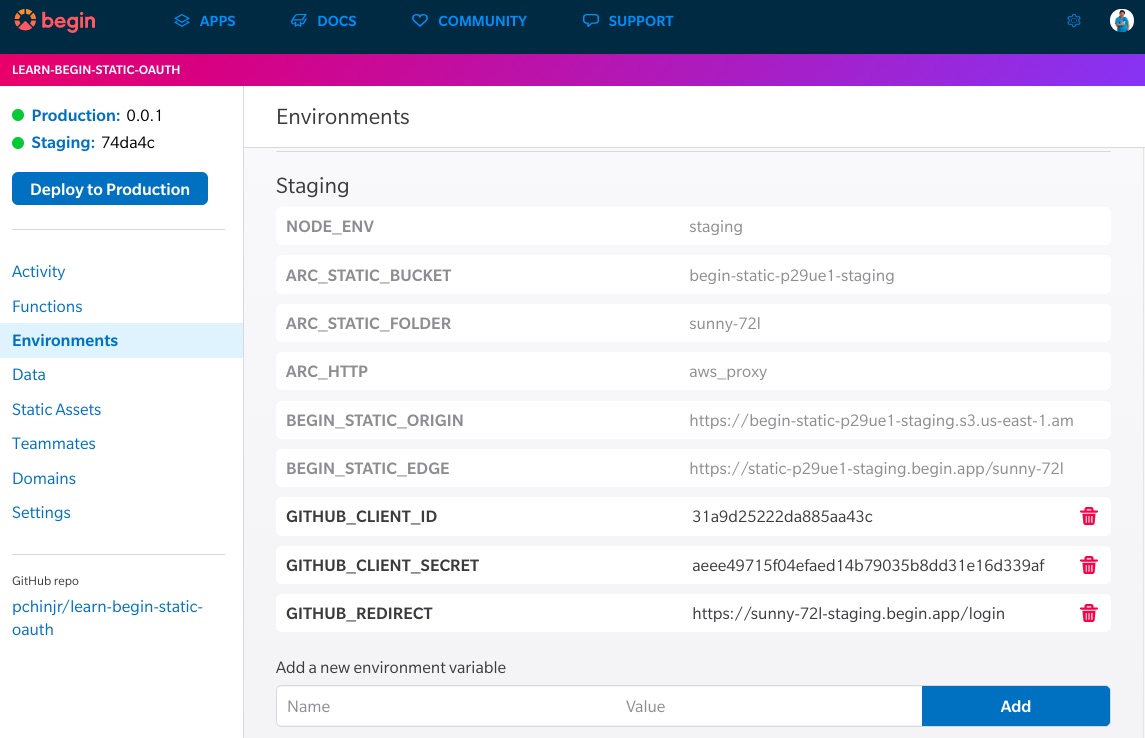Reference docs
Getting Started
Environment variables
Overview
Each of your Begin app's three hosted environments (testing, staging, and production) has its own set of independently configurable environment variables.
The name of each environment is available by default as NODE_ENV.
Configured variables are available to all processes within each environment at runtime.
Adding variables
To add your environment variables, open Environments in the left nav in Begin.
Under the environment you want to add a variable to (i.e. staging), add your key and value, and click Add.
This variable is now available to all your Functions in staging – no deploy necessary!

Note: keys can only contain upper case alphanumeric characters and underscores (
[A-Z0-9_]), and must start with a letter. Values are limited to 255 characters.
Editing variables
To modify an existing environment variable, overwrite it with a new variable with the key you want to overwrite.
To delete a variable, simply click the red delete icon.
Using Variables While Developing
When working in your development environment, you may need to provide different environment variables. Begin uses Architect to run your functions, and the same applies for local development. You can see the environment variables documentation for Architect here.
To add an environment variable, first add a .env file to your project. This file should also be included in your .gitignore file. The .env file is automatically read by arc sandbox and populates process.env.
For your development environment, you should use the @testing environment. Your .env file may look like this:
# example .env
@testing
SOME_VAR_1=some-value
SOME_VAR_2=some-other-value